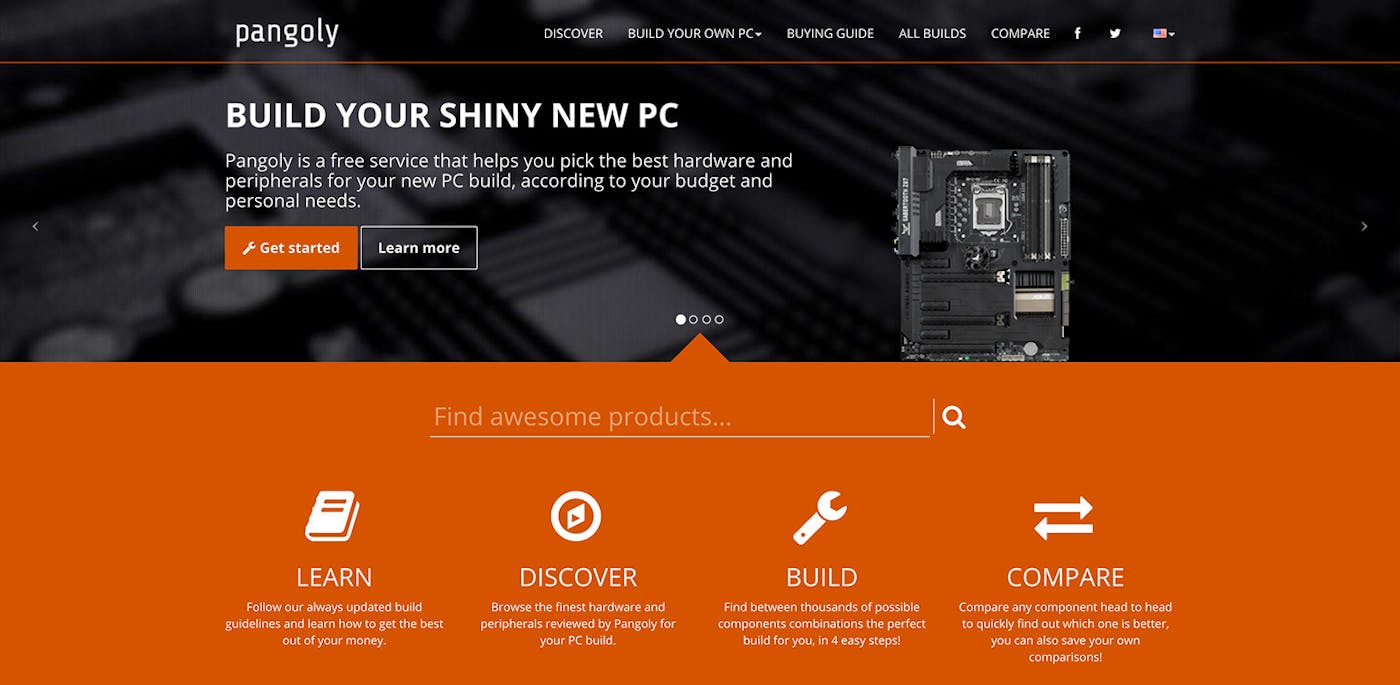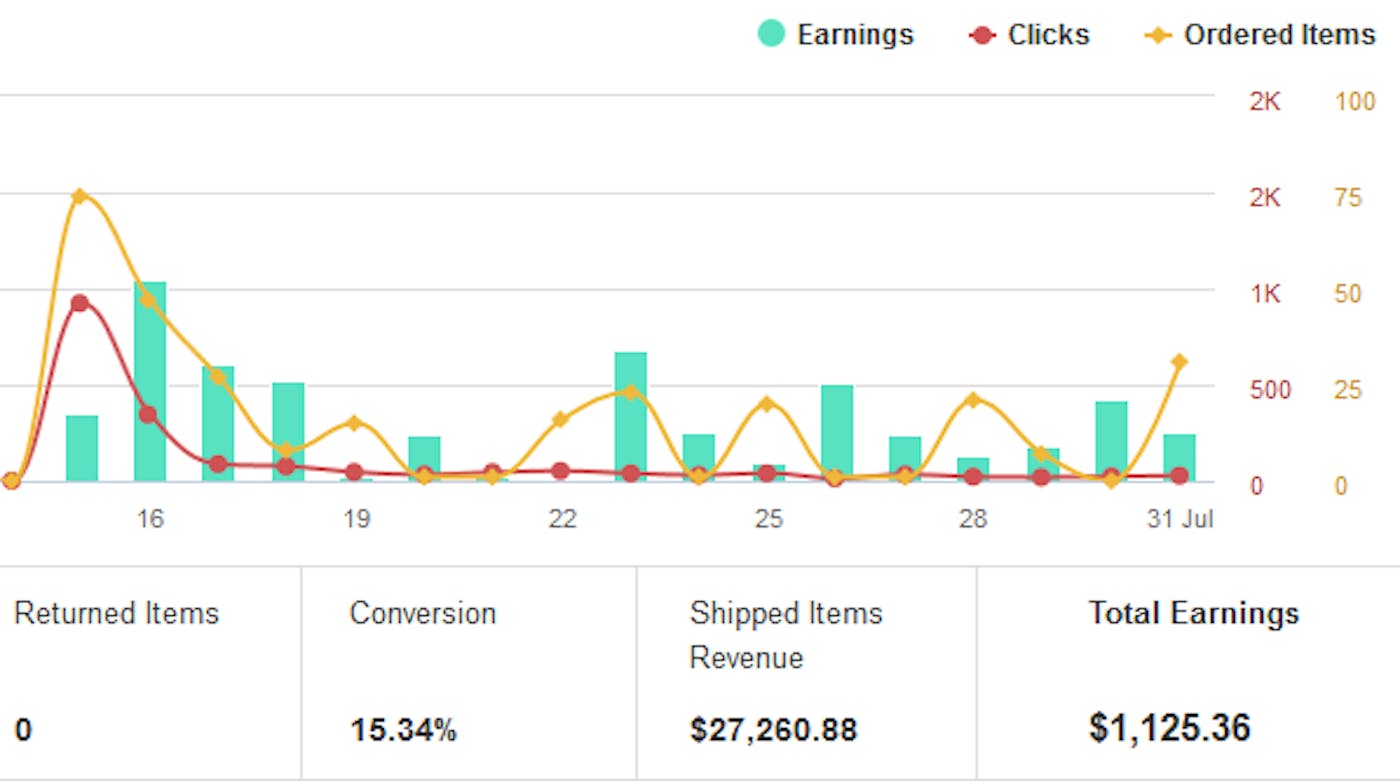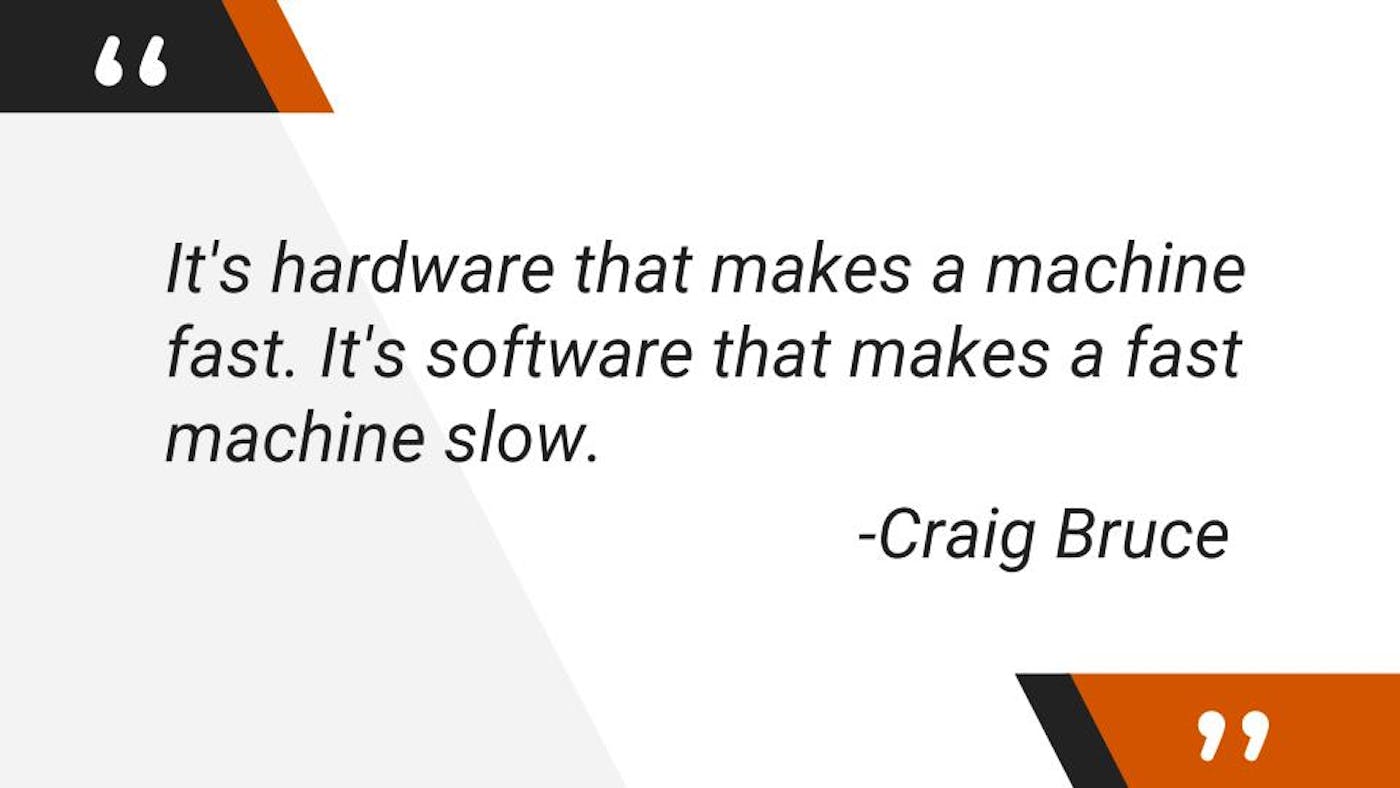Getting My Side Project to $1,500/mo by Listening to
Users
Tell us about yourself and what you're working on.
Hi, I'm Alberto, and I'm the founder of Pangoly, which is based in Milan, Italy. I'm a full-stack developer with 10+ years of experience with the Microsoft .NET stack.
Pangoly is a free service that helps you pick the best hardware and peripherals for your new PC build according to your budget and personal needs. Some of our most well-liked features include automatic builds based around your budget and preferred components;
suggesting components that are always safe and compatible with each other; and providing supplemental information like up-to-date best practices, reviews, price histories, and head-to-head comparisons.
We started small, but today over 339,946 hardware components (and counting!) have been safely assembled through Pangoly's service, and we are averaging about $1,500/mo in revenue.

How'd you get started with Pangoly?
I started working on Pangoly in 2013 as a side project with a friend of mine. We had the idea (as well as the technical expertise as professionals) of building a free service that solves a real problem: helping hardware newbies build their next PC without having the knowledge/time to stay up-to-date in the hardware market, and without having to ask for advice on amateur forums.
Picking the name for the service was fun. We wanted something original and easy to remember. We ended up choosing "pangoly", which comes from the Latin "pango", which means "to fix/plant something solid in the ground". (That's kind of what we're trying to do for you when you entrust our service with helping to build your next PC.) We just added a bit of English slang with the "ly" suffix.
We began from scratch by brainstorming and writing down some ideas on Trello, followed by organizing and sorting things by importance. Our initial product was a small, single website in English that featured 4 safely preconfigured PC builds. Today we're running a responsive web app with 5 regional sites, support for multiple languages and currencies, 8 safely preconfigured PC builds, and an expert build mode.
What's your tech stack?
Our tech stack includes:
- ASP.NET MVC C#
- SQL Server
- Entity Framework
- Elasticsearch
- Redis
- Bootstrap
- Microsoft Azure
- Cloudflare CDN
In recent years Microsoft has been doing an excellent job embracing and contributing to the open source community, plus it offers a great suite of tools that boost your productivity, so I think it was a perfect choice for boostrapping this project.
How'd you find the time and funding to build Pangoly?
It took around 3-4 months of evening/night work (while also having a full-time job) to build the first MVP before rolling it out to a small focus test group. While I was coding the entire web application, my business partner was taking care of the editorial part of the website: adding products, reviews, PC configurations, and PC building guidelines.
As for funding, we're a bootstrapped company. I supported myself during development, and besides infrastructure costs, we haven't had any other expensive resources requiring funding.
How have you attracted users and grown your business?
We submitted our site to Hacker News in July 2014, and the response was impressive. Pangoly is still ranked #14 among the top "Show HN" projects during the 2006-2015 period.
(While on the front page of Hacker News we managed to handle more than 50,000 unique users in a day without the website going down, all while using a $4/month ASP.NET MVC hosting, thanks to extensive caching and a CDN! We eventually had to scale up to a more serious and enterprise cloud computing infrastructure like Microsoft Azure, as our initial host's performance degraded over time. The new platform gave us much more space for fine tuning and rapidly scale resources according to our needs.)
After our initial success, we began to quickly implement new features and fix bugs, always listening to the feedback from our users and interacting with the community. We spent a lot of time making Pangoly more accessible, improving the UX, and adding features like advanced filtering, and product comparisons. We also improved the page rendering to reach a consistent 60fps, added query optimizations, implemented lazy loading, made SEO and microdata improvements, switched to HTTPS (which is now also a ranking signal), and much more.
Besides that, word-of-mouth, organic search, and mentions on forums have done the rest.
What's the story behind your revenue?
Pangoly's only revenue is achieved through affiliate marketing. We don't display any ads on our website, because as you know, ads suck!
Although I'm sure there are many great ways to make money, monetization is not one of our primary goals. Pangoly's mission is to use our expertise to provide the most unbiased, high quality, and relevant suggestions based on user needs and preferences, even if that goes against optimal revenue generation.

What are your goals for the future?
There are still a lot of foreseeable ways to expand Pangoly's business. The most obvious one is to keep adding content localizations, regional sites, and expanding our product base.
I think the most interesting and challenging prospect would be selling our whole platform as a service to online hardware retailers, so that anyone owning an online store could create their own configurations and use our PC configurator wizard and analysis services as an addon, with the possibility to add extra perks like assemblying parts and installing operating systems into the workflow. This could dramatically improve the shopping experience, conversion rates, and revenue for any online e-commerce website.
If you had to start over, what would you do differently?
From a technical point of view, I think it all went pretty smooth. On the other side of things, I would have probably invested more resources in marketing, as it's really hard to get noticed and attract users in an oversaturated market like ours.
What advice would you share with aspiring indie hackers?
Focus on delivering an excellent product, then think how can you monetize it.
Do not be afraid of failure. 90% of startups somehow fail. Try to start from a small prototype so you can immediately understand if your idea can be successful. It also enables you to quickly solve problems that you wouldn't have even thought about in the beginning before testing with users.
Analyze and learn from your competitors. They certainly have more experience than you. Exploit their weaknesses in order to have an advantage over them and get your slice of the market.
Do not work beyond your limits. Avoid burnouts by keeping a balanced lifestyle, and allow your body and mind to have the proper rest they need.
The Internet is full of great individuals working hard every day to make the web a better place for all of us. Here's a list of people that are a great inspiration to me and who you should follow too. In no particular order, they are:
- Sara Soueidan (@SaraSoueidan)
- Remy Sharp (@rem)
- Scott Hanselman (@shanselman)
- Eric Meyer (@meyerweb)
- Luke Wroblewski (@lukew)
- Lea Verou (@LeaVerou)
- Paul Irish (@paul_irish)
- Brad Frost (@brad_frost)
- Addy Osmani (@addyosmani)
Where can we learn more?
If you have any question or business inquiries, you can drop us a line here or email [email protected]. We are on social, too! Find us on Facebook, Twitter (@pangolycom), and Slideshare.
And remember:

You can also leave a comment below!
